The Free Software Definition written by Richard Stallman and published by Free Software Foundation (FSF), defines free software as being software that ensures that the end users have freedom in using, studying, sharing and modifying that software. The term "free" is used in the sense of "free speech," not of "free of charge." The earliest-known publication of the definition was in the February 1986 edition of the now-discontinued GNU's Bulletin publication of FSF. The canonical source for the document is in the philosophy section of the GNU Project website. As of April 2008, it is published there in 39 languages. FSF publishes a list of licences which meet this definition.

GNU is an operating system and an extensive collection of computer software. GNU is composed wholly of free software, most of which is licensed under the GNU Project's own General Public License (GPL).

GNU Savannah is a project of the Free Software Foundation initiated by Loïc Dachary, which serves as a collaborative software development management system for free Software projects. Savannah currently offers CVS, GNU arch, Subversion, Git, Mercurial, Bazaar, mailing list, web hosting, file hosting, and bug tracking services. Savannah initially ran on the same SourceForge software that at the time was used to run the SourceForge portal.
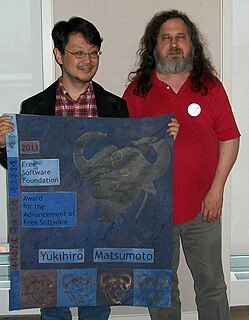
Free Software Foundation (FSF) grants two annual awards. Since 1998, FSF has granted the award for Advancement of Free Software and since 2005, also the Free Software Award for Projects of Social Benefit.
Source-available software is software released through a source code distribution model that includes arrangements where the source can be viewed, and in some cases modified, but without necessarily meeting the criteria to be called open-source. The licenses associated with the offerings range from allowing code to be viewed for reference to allowing code to be modified and redistributed for both commercial and non-commercial purposes.
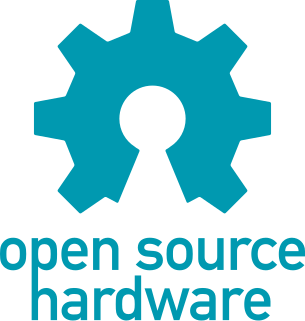
Open-source hardware (OSH) consists of physical artifacts of technology designed and offered by the open-design movement. Both free and open-source software (FOSS) and open-source hardware are created by this open-source culture movement and apply a like concept to a variety of components. It is sometimes, thus, referred to as FOSH. The term usually means that information about the hardware is easily discerned so that others can make it – coupling it closely to the maker movement. Hardware design, in addition to the software that drives the hardware, are all released under free/libre terms. The original sharer gains feedback and potentially improvements on the design from the FOSH community. There is now significant evidence that such sharing can drive a high return on investment for the scientific community.
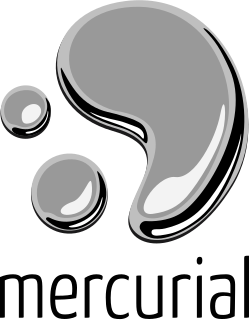
Mercurial is a distributed revision-control tool for software developers. It is supported on Microsoft Windows and Unix-like systems, such as FreeBSD, macOS and Linux.

Richard Matthew Stallman, often known by his initials, rms, and occasionally upper-case RMS, is an American free software movement activist and programmer. He campaigns for software to be distributed in a manner such that its users receive the freedoms to use, study, distribute, and modify that software. Software that ensures these freedoms is termed free software. Stallman launched the GNU Project, founded the Free Software Foundation, developed the GNU Compiler Collection and GNU Emacs, and wrote the GNU General Public License.

WTFPL is a GPL-compatible permissive license most commonly used as a free software license. As a public domain like license, the WTFPL is essentially the same as dedication to the public domain. It allows redistribution and modification of the work under any terms. The title is an abbreviation of "Do what the fuck you want to Public License".
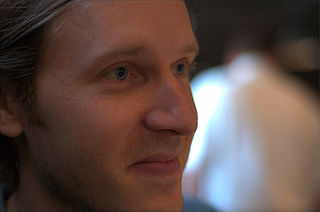
William John Sullivan is a software freedom activist, hacker, and writer. John is currently executive director of the Free Software Foundation, where he has worked since early 2003. He is also a speaker and webmaster for the GNU Project. He also maintains the Plannermode and delicious-el packages for the GNU Emacs text editor.
License compatibility is a legal framework that allows for pieces of software with different software licenses to be distributed together. The need for such a framework arises because the different licenses can contain contradictory requirements, rendering it impossible to legally combine source code from separately-licensed software in order to create and publish a new program. Proprietary licenses are generally program-specific and incompatible; authors must negotiate to combine code. Copyleft licenses are deliberately incompatible with proprietary licenses, in order to prevent copyleft software from being re-licensed under a proprietary license, turning it into proprietary software. Many copyleft licenses explicitly allow relicensing under some other copyleft licenses. Permissive licenses are compatible with everything, including proprietary licenses; there is thus no guarantee that all derived works will remain under a permissive license.

Copyleft, distinguished from copyright, is the practice of offering people the right to freely distribute copies and modified versions of a work with the stipulation that the same rights be preserved in derivative works created later. Copyleft software licenses are considered protective or reciprocal, as contrasted with permissive free-software licenses.

The GNU Free Documentation License is a copyleft license for free documentation, designed by the Free Software Foundation (FSF) for the GNU Project. It is similar to the GNU General Public License, giving readers the rights to copy, redistribute, and modify a work and requires all copies and derivatives to be available under the same license. Copies may also be sold commercially, but, if produced in larger quantities, the original document or source code must be made available to the work's recipient.
The Free Software Foundation (FSF) is a 501(c)(3) non-profit organization founded by Richard Stallman on 4 October 1985 to support the free software movement, which promotes the universal freedom to study, distribute, create, and modify computer software, with the organization's preference for software being distributed under copyleft terms, such as with its own GNU General Public License. The FSF was incorporated in Massachusetts, US, where it is also based.

Jami is a SIP-compatible softphone and SIP-based instant messenger for Linux, Microsoft Windows, OS X, iOS and Android. Developed and maintained by the Canadian company Savoir-faire Linux, and with the help of a global community of users and contributors, Jami positions itself as a potential free Skype replacement.
Jack Moffitt is a computer scientist, software developer and entrepreneur, living in Eden Prairie, Minnesota. He is co-author of the GNU GPL licensed streaming media server Icecast and often works on software using XMPP, JavaScript and Erlang. He also worked as executive director of Xiph.Org Foundation and developer of Ogg Vorbis project. Moffitt's work with Erlang has made him a regular presenter at the Erlang Factory conference series. Moffit's 2012 application for XMPP.org lists several of his other projects.

Jonas Öberg is a free and open-source software activist, describing himself as an instigator in the world of free, having worked with the Free Software Foundation Europe, GNU Project, FSCONS, Creative Commons and the Shuttleworth Foundation. He started to develop software in 1991 and installed his first GNU/Linux operating system in 1993 after which he eventually joined as a webmaster for the GNU Project. In the late 1990s, he spent some time at the MIT AI Labs where he met with Richard Stallman and others from the Free Software Foundation, joining them for The Bazaar conference in New York. Since 2002, he has been on the award committee for the Free Software Foundation's Free Software Awards.
Software relicensing is applied in open-source software development when software licenses of software modules are incompatible and are required to be compatible for a greater combined work. Licenses applied to software as copyrightable works, in source code as binary form, can contain contradictory clauses. These requirements can make it impossible to combine source code or content of several software works to create a new combined one.
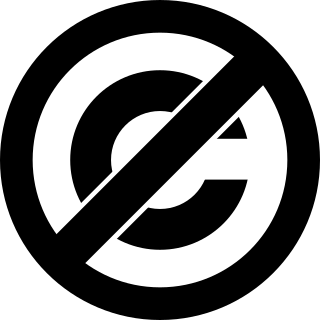
The Unlicense is a public domain equivalent license with a focus on an anti-copyright message. It was first published on January 1, 2010. The Unlicense offers a public domain waiver text with a fall-back public-domain-like license, inspired by permissive licenses but without an attribution clause. In 2015, GitHub reported that approximately 102,000 of their 5.1 million licensed projects use the Unlicense.












